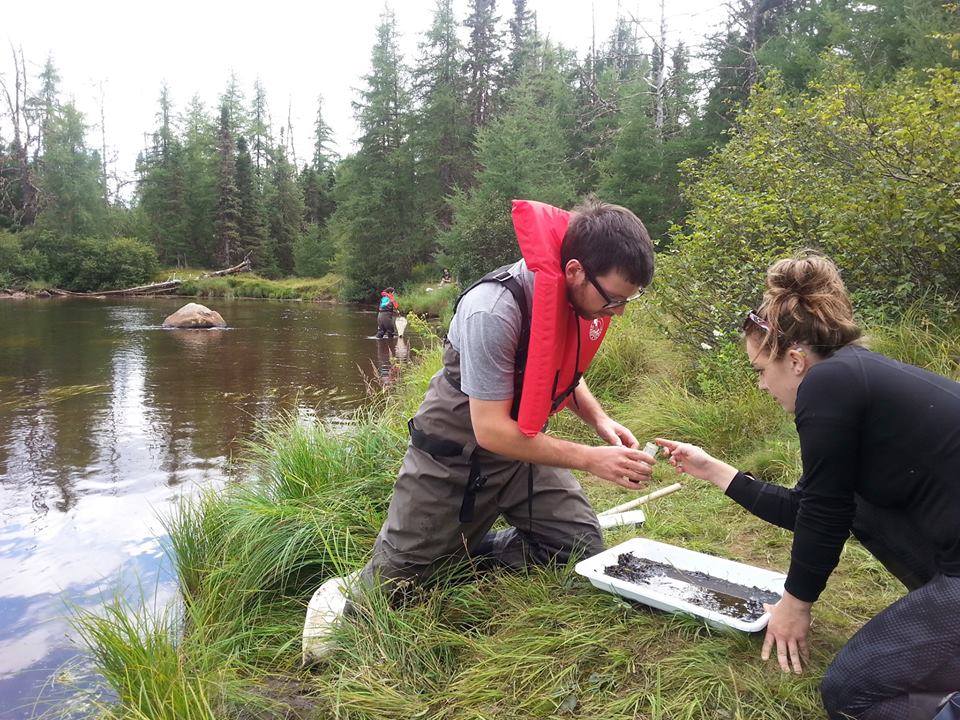Environmental Scientist: Exploring the Role and Importance of These Experts in Protecting the Planet
In today’s world, it is more important than ever to have individuals who are experts in environmental science. These professionals play a vital role in protecting the planet and its inhabitants, working to safeguard our air, water, and land from pollution, climate change, and other environmental threats. In this article, we will explore the role and importance of environmental scientists and highlight the skills and knowledge required to succeed in this field.

What is an Environmental Scientist?
An environmental scientist is a professional who specializes in studying the natural world and the impacts of human activity on it. They use scientific methods and tools to measure, analyze, and interpret environmental data and develop strategies to protect the environment and human health.
Environmental scientists may specialize in different areas, such as air quality, water quality, soil science, toxicology, environmental health, or climate change. They work in a variety of settings, including government agencies, consulting firms, research institutions, and non-profit organizations.
What Does an Environmental Scientist Do?
Environmental scientists have a diverse range of duties, depending on their specialization and job title. Some of the common responsibilities of an environmental scientist include:
- Conducting research and collecting data on environmental issues such as climate change, pollution, and habitat destruction.
- Analyzing data using statistical and modeling software to identify patterns, trends, and potential risks.
- Developing and implementing plans to reduce or mitigate environmental risks.
- Conducting environmental impact assessments to evaluate the potential effects of new projects or policies on the environment.
- Advising government agencies, businesses, and non-profit organizations on environmental policies, regulations, and practices.
- Educating the public about environmental issues and promoting sustainable practices.
- Monitoring and enforcing environmental regulations and laws.
- Collaborating with other scientists, engineers, policymakers, and stakeholders to develop interdisciplinary solutions to complex environmental problems.
Why are Environmental Scientists Important?
Environmental scientists play a critical role in protecting the planet and its inhabitants. Here are some of the reasons why environmental science is important:
- Protecting human health: Environmental scientists study the effects of pollutants, toxic substances, and other environmental hazards on human health. By identifying and mitigating these risks, they help prevent illnesses, diseases, and premature deaths.
- Promoting sustainable practices: Environmental scientists promote sustainable practices that reduce the impact of human activities on the environment. This includes developing renewable energy sources, reducing waste and pollution, and protecting natural resources such as forests, waterways, and wildlife.
- Supporting policy development: Environmental scientists provide scientific data and expertise to policymakers, helping them develop evidence-based policies and regulations that protect the environment and public health.
- Responding to environmental emergencies: Environmental scientists play a critical role in responding to natural disasters, oil spills, and other environmental emergencies. They work to assess the damage and develop strategies to clean up and restore affected areas.
- Driving innovation: Environmental scientists drive innovation in fields such as renewable energy, waste management, and pollution prevention. Their research and development efforts lead to new technologies and practices that promote sustainability and reduce environmental risks.
Skills and Knowledge Required for Environmental Scientists
To succeed as an environmental scientist, individuals must possess a unique set of skills and knowledge. Here are some of the key competencies required for this field:
- Strong scientific and analytical skills: Environmental scientists must have a strong foundation in the natural sciences, including biology, chemistry, and physics. They must also be skilled in data analysis, modeling, and statistical analysis.
- Interdisciplinary expertise: Environmental science is an interdisciplinary field, and environmental scientists must be able to work with experts from different fields, including engineers, policymakers, and stakeholders.
- Communication skills: Environmental scientists must be able to communicate scientific data and concepts to a variety of audiences, including policymakers, business leaders, and the general public. They must be able to write reports, give presentations, and engage in public speaking.
- Problem-solving skills: Environmental scientists must be able to identify and solve complex environmental problems. They must be able to think creatively and develop innovative solutions to environmental challenges.
- Ethical and social awareness: Environmental scientists must have a strong ethical foundation and an understanding of the social implications of their work. They must be able to balance the needs of different stakeholders and consider the social and economic impacts of environmental policies and practices.
- Technology proficiency: Environmental scientists must be proficient in using technology, including scientific instruments, modeling software, and geographic information systems (GIS). They must also be comfortable with computer programming and data analysis software.
Education and Training for Environmental Scientists
To become an environmental scientist, individuals typically need at least a bachelor’s degree in environmental science or a related field, such as biology, chemistry, or geology. However, many employers prefer candidates with a master’s degree or higher, particularly for advanced research or management positions.
Environmental science programs typically include coursework in ecology, environmental policy, environmental law, statistics, and data analysis. Some programs also offer specialized courses in areas such as climate change, air quality, or water resources.
In addition to formal education, environmental scientists often pursue certification or licensure in their field. The National Environmental Health Association (NEHA) offers a variety of certifications for environmental scientists, including the Certified Environmental Scientist (CES) and the Certified Environmental Health Professional (CEHP) credentials.
Career Outlook for Environmental Scientists
According to the Bureau of Labor Statistics, employment of environmental scientists and specialists is projected to grow 8% from 2020 to 2030, faster than the average for all occupations. This growth is driven by increasing public awareness of environmental hazards and the need to develop sustainable practices to protect the planet.
Environmental scientists can work in a variety of industries and settings, including:
- Government agencies: Federal, state, and local governments employ environmental scientists to develop and enforce environmental policies and regulations.
- Consulting firms: Environmental consulting firms provide a variety of services, including environmental assessments, remediation planning, and sustainability consulting.
- Non-profit organizations: Environmental non-profits work to protect natural resources and promote sustainable practices.
- Research institutions: Environmental scientists can work in academic research institutions, where they conduct original research and publish scientific papers.
- Private industry: Many industries, such as energy and transportation, employ environmental scientists to ensure compliance with environmental regulations and develop sustainable practices.
The median annual wage for environmental scientists and specialists was $73,230 in May 2020, according to the Bureau of Labor Statistics. However, wages can vary widely depending on the industry, location, and level of education and experience.
| Skill/Quality | Description |
|---|---|
| Interdisciplinary expertise | Environmental scientists must have a broad understanding of various scientific disciplines, including biology, chemistry, geology, and physics. They must also have knowledge of environmental policy, law, and economics. |
| Analytical skills | Environmental scientists must be skilled in analyzing complex data sets and identifying patterns and trends. They must be able to use scientific methods and tools to gather and interpret data. |
| Communication skills | Environmental scientists must be able to communicate complex scientific information to a variety of audiences, including policymakers, business leaders, and the general public. They must be able to write reports, give presentations, and engage in public speaking. |
| Problem-solving skills | Environmental scientists must be able to identify and solve complex environmental problems. They must be able to think creatively and develop innovative solutions to environmental challenges. |
| Ethical and social awareness | Environmental scientists must have a strong ethical foundation and an understanding of the social implications of their work. They must be able to balance the needs of different stakeholders and consider the social and economic impacts of environmental policies and practices. |
| Technology proficiency | Environmental scientists must be proficient in using technology, including scientific instruments, modeling software, and geographic information systems (GIS). They must also be comfortable with computer programming and data analysis software. |
FAQs
[sc_fs_multi_faq headline-0=”h4″ question-0=”What kind of degree do I need to become an environmental scientist?” answer-0=”A bachelor’s degree in environmental science, biology, chemistry, or a related field is typically required for entry-level positions. A master’s or doctoral degree may be required for more advanced positions in research or academia.” image-0=”” headline-1=”h4″ question-1=”What kind of industries or organizations hire environmental scientists?” answer-1=”Environmental scientists can work for a wide range of organizations, including government agencies, consulting firms, non-profit organizations, and private companies in industries such as energy, agriculture, and manufacturing.” image-1=”” headline-2=”h4″ question-2=”What kind of environmental issues do environmental scientists work on?” answer-2=”Environmental scientists work on a variety of issues related to environmental health, sustainability, and conservation. These may include air and water pollution, climate change, habitat destruction, and waste management.” image-2=”” headline-3=”h4″ question-3=”What are some examples of day-to-day tasks for environmental scientists?” answer-3=”Environmental scientists may spend their time conducting field research, analyzing data, writing reports, developing and implementing environmental policies, and working with stakeholders to address environmental issues.” image-3=”” headline-4=”h4″ question-4=”Is a career in environmental science financially rewarding?” answer-4=”Salaries for environmental scientists vary depending on the specific job and industry, but the field offers a range of career opportunities with competitive salaries. Additionally, many individuals find the work personally fulfilling and rewarding because of its potential positive impact on the environment.” image-4=”” headline-5=”h4″ question-5=”What are some key skills and qualities that environmental scientists need to be successful in their careers?” answer-5=”Environmental scientists need a range of skills and qualities, including interdisciplinary expertise, analytical skills, communication skills, problem-solving skills, ethical and social awareness, and technology proficiency. These skills and qualities allow environmental scientists to effectively analyze and solve complex environmental problems and communicate their findings to a variety of stakeholders.” image-5=”” count=”6″ html=”true” css_class=””]
Conclusion
Environmental scientists play a critical role in protecting the planet and its inhabitants from environmental hazards. They use scientific methods and interdisciplinary expertise to identify and mitigate environmental risks, promote sustainable practices, and drive innovation. To succeed in this field, individuals must possess strong scientific and analytical skills, interdisciplinary expertise, and excellent communication and problem-solving abilities. With a growing demand for environmental expertise, environmental science is an exciting and rewarding career choice for those interested in protecting the planet and promoting sustainability.
In conclusion, environmental science is a fascinating and important field that plays a vital role in protecting the planet and promoting sustainable practices. Environmental scientists use a range of scientific and interdisciplinary skills to identify and mitigate environmental hazards, develop innovative solutions, and promote sustainability. With a growing demand for environmental expertise, this field offers many opportunities for rewarding careers in a variety of industries and settings. Whether you’re interested in government policy, private industry, non-profit work, or academic research, a career in environmental science can be both personally fulfilling and professionally rewarding.
If you’re considering a career in environmental science, it’s important to develop strong scientific and analytical skills, interdisciplinary expertise, and excellent communication and problem-solving abilities. By pursuing a degree in environmental science, gaining experience through internships or volunteer work, and pursuing certification or licensure in the field, you can position yourself for a successful career in this exciting and important field.
As the world faces increasing environmental challenges such as climate change, pollution, and habitat destruction, the work of environmental scientists will become even more important. By contributing your skills and expertise to the field of environmental science, you can play an important role in protecting the planet and promoting sustainable practices for generations to come.
Also check:
From Data to Intelligence: How to Become an Analyst
A Comprehensive Guide to Civil Engineering: Education, Skills, and Career Paths
The Ultimate Guide to Becoming a Successful Administrative Assistant
Promoting Fairness and Inclusion: The Role of a Human Resources Specialist
The Essential Guide to System Administrator Job Descriptions

